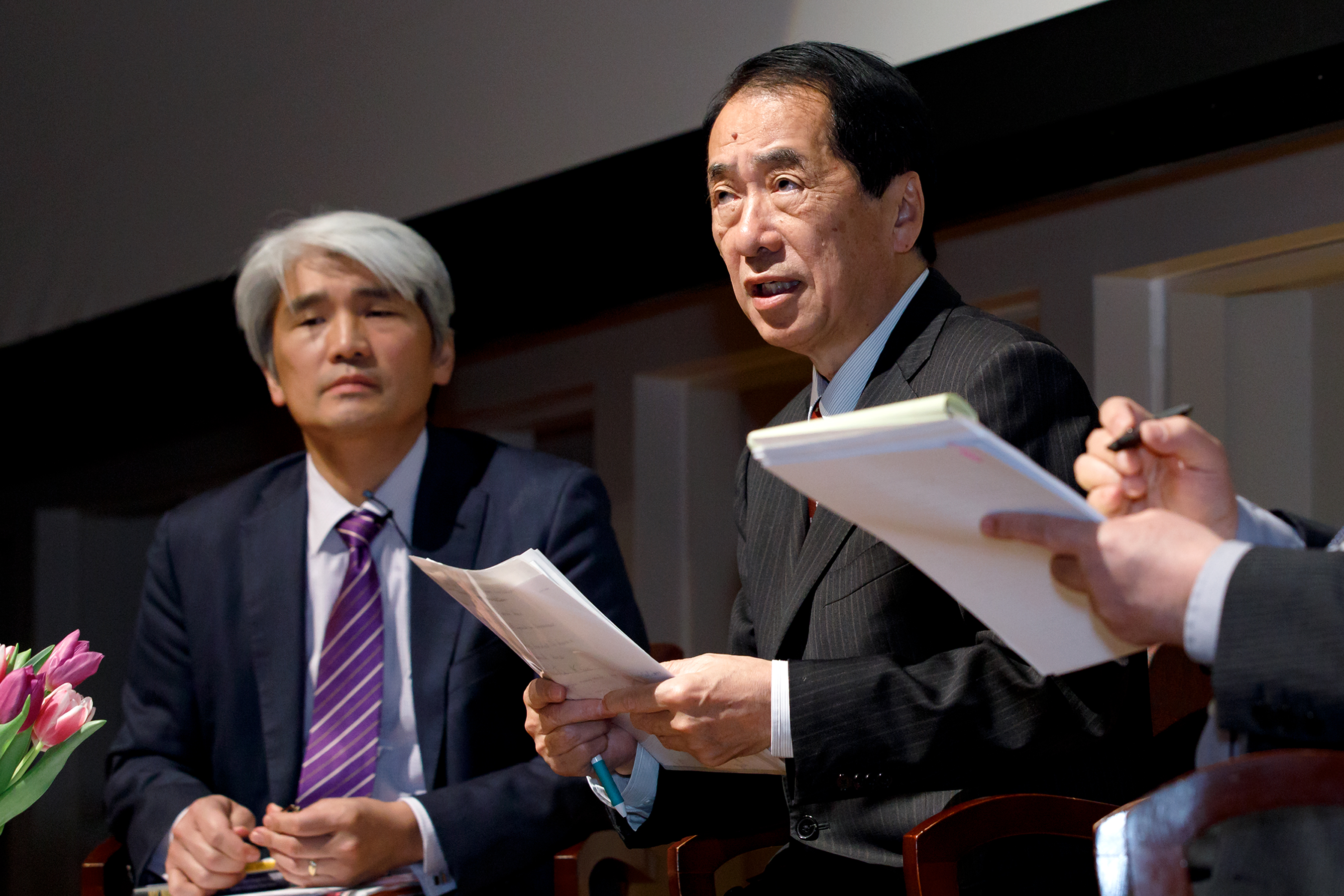Former Japan prime minister discusses nuclear plant disaster
By Ismael Oumzil

Naoto Kan, Japan’s prime minister from 2010 to 2011, discussed his experience leading his country through the 2011 Fukushima Daiichi nuclear power plant disaster in a March 28 talk before a standing-room audience at the Statler Auditorium. Kan also shared his views on the direction he believes the world should take with energy.
Kan recounted the details of March 11, 2011, when an earthquake and resulting tsunami severely damaged the Daiichi plant and knocked out electrical power necessary for pumps and emergency systems. Meltdowns at several reactors led to hydrogen explosions and radioactive leaks, forcing Kan to make difficult decisions weighing the potentially catastrophic risks to millions of area residents against the health and safety of power company employees and emergency workers.
The worst-case scenario, as Kan described it, would require the evacuation of 50 million people, including all of Tokyo. If the situation was not handled correctly, he said, Japan could have easily been wiped out. It was only through long hours of leadership and action, on and off the site, as well as what he called the “grace of the gods,” that this sort of cataclysm was averted.
However, the job was far from done. While Kan put a cleanup program into motion soon after the accident, he said radiation continues to leak from the site, and it will be 100 years before the area is completely restored. He compared the radiation to an invisible enemy.
“Japanese people created this enemy for themselves, even though they don’t like to believe it,” he said.
There are only three operational nuclear plants in the country today, but the government plans to bring dozens of reactors back online. As a member of the Diet, Japan’s parliament, Kan is heading an effort to eliminate all nuclear energy in Japan by 2030. He said renewable sources like solar, wind, water and biomass must replace it.
Citizens of Japan are doing their part to be more energy efficient, he said. Japanese energy consumption has decreased 10 percent as homeowners make use of solar panels and windows with insulating glass. It has also become popular for farmers to supplement their falling incomes by generating solar energy in their rice fields.
Kan’s lecture, “The Truth about the Nuclear Disaster in Fukushima and the Future of Renewable Energy,” was part of the Mario Einaudi Center for International Studies’ Distinguished Speaker Series. It is one of several events organized by the center on the global significance of the disaster.
After the talk, Kan signed copies of his new book, “My Nuclear Nightmare: Leading Japan Through the Fukushima Disaster to a Nuclear-Free Future,” published by Cornell University Press. The book provides a detailed account of his actions through the tragic week following the earthquakes.
Ismael Oumzil ’17 is a writer intern for the Cornell Chronicle.
Media Contact
Get Cornell news delivered right to your inbox.
Subscribe